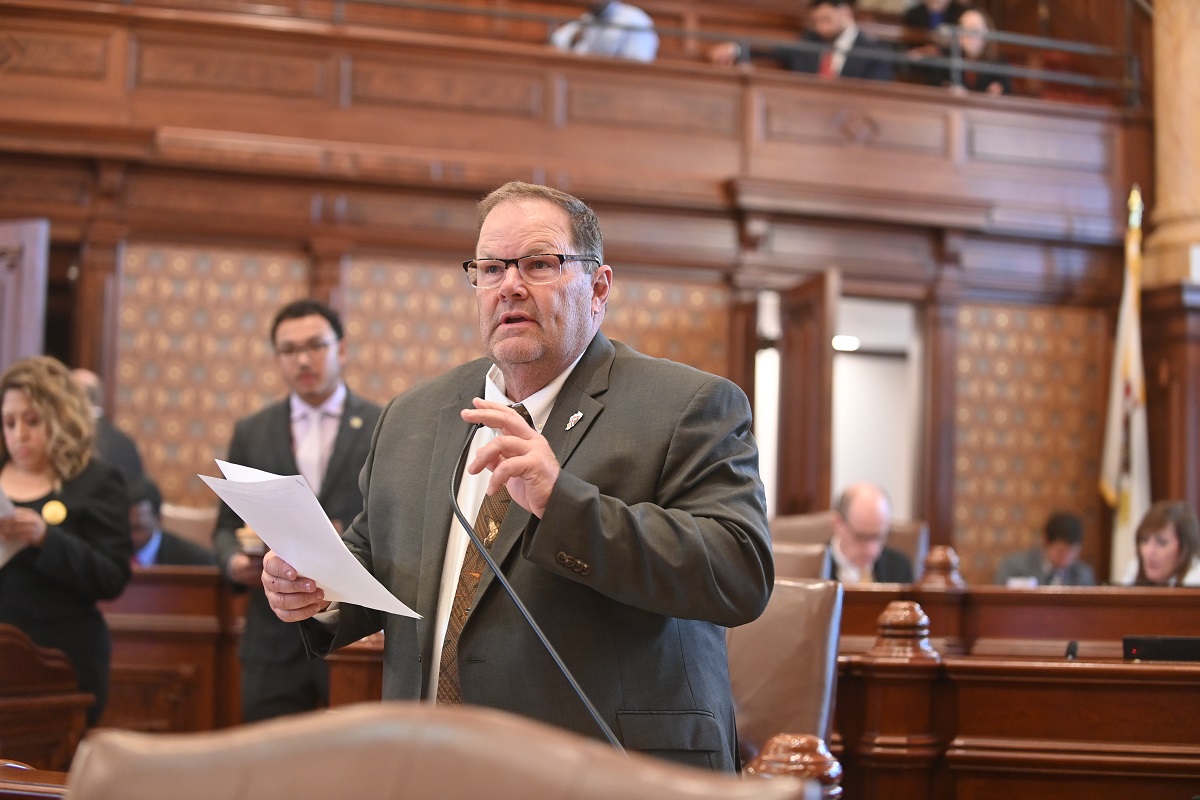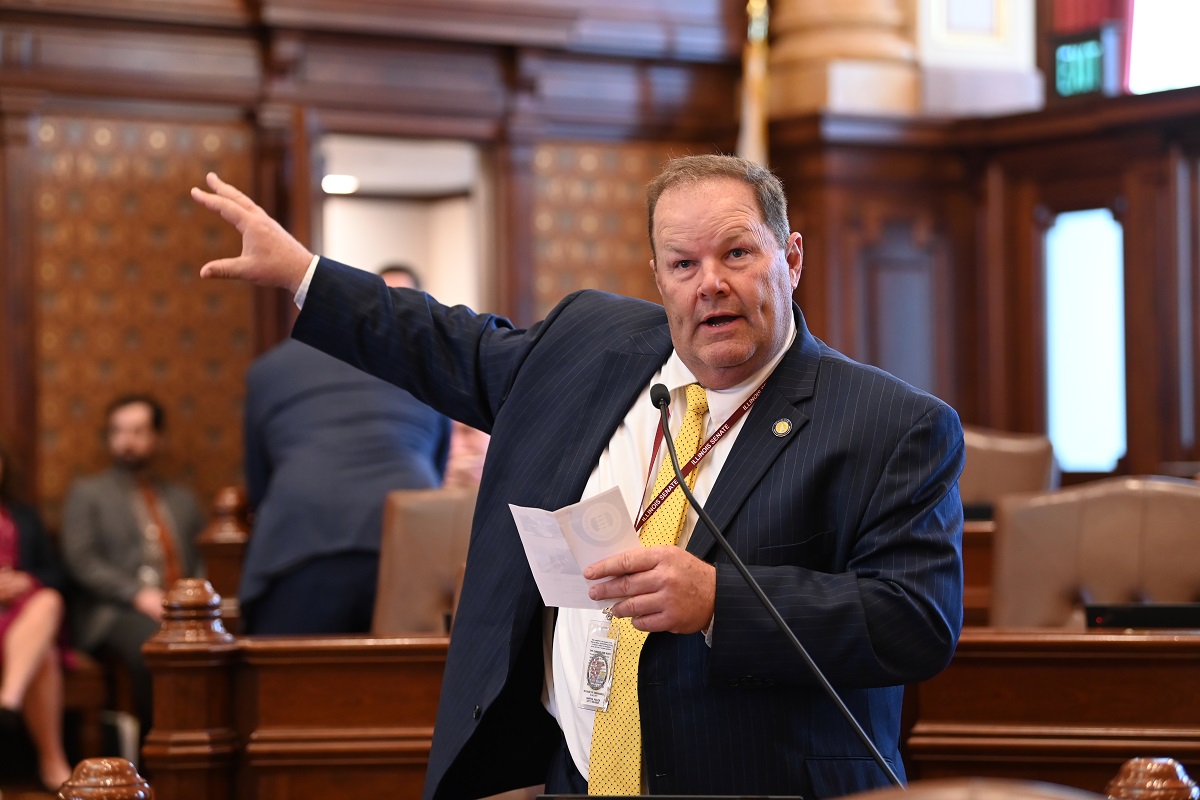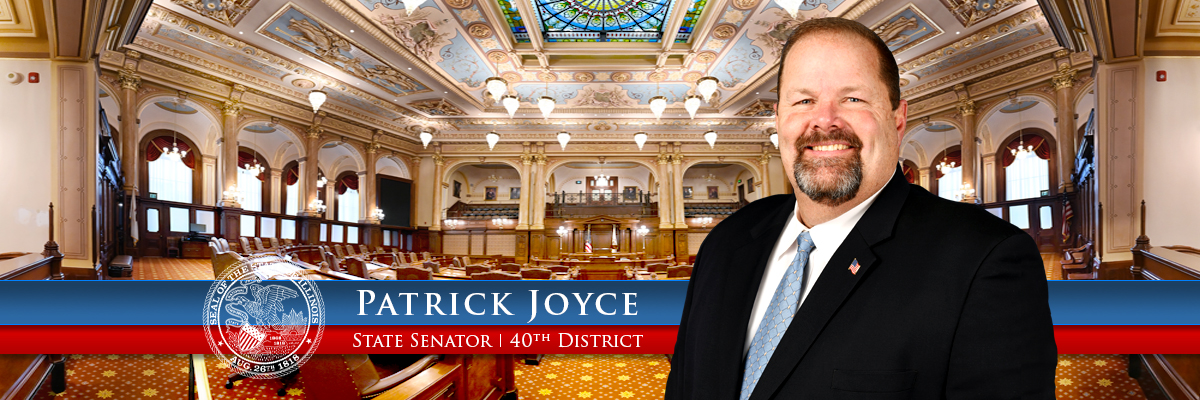- Details
- Category: Press Releases

KANKAKEE – State Senator Patrick Joyce secured over $90 million to build and repair infrastructure in the South Suburbs and greater Kankakee area.
“From Wilmington to Park Forest, these local projects will improve road safety and bring good-paying jobs to the district,” said Joyce (D-Essex). “We made a bipartisan commitment to improve our state’s aging infrastructure and now, over the years, we are seeing that vision come to life.”
The largest multi-year program to build and repair infrastructure in state history will invest $50.6 billion over six years, continuing an unprecedented investment in safety, mobility and quality of life made possible by the bipartisan Rebuild Illinois capital program. The Illinois Department of Transportation’s new multi-year program is both comprehensive and multimodal, with investments in roads and bridges, aviation, transit, freight and passenger rail, waterways, and bicycle and pedestrian accommodations touching every Illinois county.
Read more: Over $90 million coming to 40th District infrastructure with strong support from Joyce
- Details
- Category: Press Releases

SPRINGFIELD – State Senator Patrick Joyce’s proposal to help farmers protect their crop yields was signed into law on Friday.
“Legislation like this highlights the moments where government works,” said Joyce (D-Essex). “Through the Illinois Farm Bureau I was able to hear and see the issues our farmers were experiencing and from there I was able to do my job by getting this bill to the governor’s desk.”
Senate Bill 710 addresses multiple issues with the nuisance deer program and deer hunting tags. Currently for nuisance deer, a property owner has to prove each year that there has been damage to property, like destruction of crops, by the deer. Farmers have been requesting a better way to handle this because under the current program, they cannot manage the deer population until after a problem has occurred. The bill would allow the Illinois Department of Natural Resources to issue deer removal permits based on the percentage of permits redeemed in the previous season by the recipient. The bill would also allow for an expansion of youth hunting tags from one to two.
Read more: Joyce measure to help farmers with deer control signed into law
- Details
- Category: Press Releases

KANKAKEE – State Senator Patrick Joyce announced that 18 school districts across the 40th District will receive over $8 million in evidence-based funding, in addition to the base funding that the state provides.
“I am dedicated to ensuring schools across my district get their fair share of state funds,” said Joyce (D-Essex). “From Park Forest to Bourbonnais and South Willy, evidence-based funding brings support to schools that need it most.”
The funding comes from the 2017 Illinois Senate Democrat-backed evidence-based funding formula — an overhaul of the way the state funds K-12 education. The law made school funding more equitable by calculating the needs of individual school districts and basing state revenue on those needs. The formula takes into account a district’s total enrollment, poverty rate and number of special education or English language learners, among other factors.
Read more: Joyce brings over $8 million in additional funding to local school districts
- Details
- Category: Press Releases

SPRINGFIELD – Landowners and farmers will now have more flexibility when it comes to hunting on their own property after legislation from State Senator Patrick Joyce was signed into law on Friday.
“People only get so much time in a season to get out there and hunt,” said Joyce (D-Essex). “This legislation will make sure hunters maximize their time hunting deer, instead of hunting for permits.”
House Bill 2340 allows landowner deer and hunting permits to be issued without charge to Illinois landowners who own at least 20 acres in a county where there is positively identified chronic wasting disease cases in the deer herd, resident tenants of at least 20 acres of commercial agricultural land where they will hunt, or an owner, shareholder or partner of a business that owns at least 20 acres of land.
Read more: Joyce-led measure to expand hunting permit eligibility signed into law
More Articles …
Page 3 of 67



